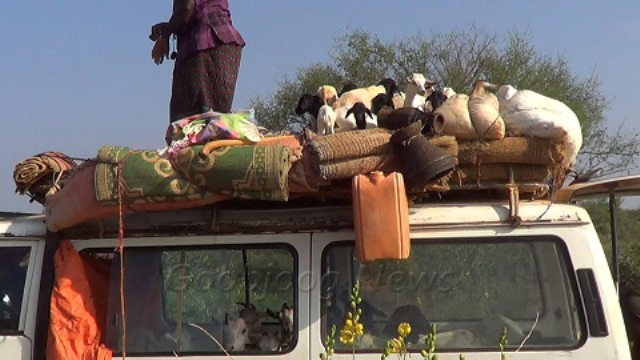Federal Government of Somalia and UN call for the protection of aid workers in commemoration of World Humanitarian Day

On the occasion of World Humanitarian Day, the Federal Government of Somalia and the United Nations in Somalia are calling for the protection of aid workers who provide life-saving assistance to vulnerable children, women and men in the country.
“This year, World Humanitarian Day has come at a critical time when the triple threat of COVID-19, floods and desert locusts has aggravated Somalia’s complex, protracted humanitarian crisis,” said the UN Humanitarian Coordinator for Somalia, Mr. Adam Abdelmoula. “The humanitarian community estimated that 5.2 million people would need assistance and protection in 2020, but the situation is worsening. Without sustained assistance, 3.5 million people will fail to meet their minimum food needs by September. In addition, we must shift the paradigm to sustainable solutions that help build resilience and lift people out of poverty,” Mr. Abdelmoula added.
The operating environment in Somalia is particularly challenging for humanitarian workers due to widespread insecurity and poor infrastructure, which hampers the delivery of assistance to people in need. Access constraints surged during the first half of 2020, with 141 incidentsreported against humanitarian operations by the end ofJuly, compared to 151 in all of 2019. Eleven humanitarian workers were killed, 11 wounded and 23 kidnapped, including seven who were kidnapped and murdered in a single incident.
“I want to express my heartfelt gratitude to Somali aid workers, for their continued and unwavering service to humanity in one of the world’s most dangerous operating environments,” said Mr. Hamza Said Hamza, Somalia Federal Minister for Humanitarian Affairs and Disaster Management. “I want to make special mention of the Somali humanitarian workers who form the backbone of the humanitarian operation in the country.”
Since March, Somalia has recorded more than 3,200 COVID-19 cases and 93 deaths. Concurrently, floods have affected nearly 200,000 people since late June in Hirshabelle, South West and Jubaland States, as well as Banadir region; displacing approximately 124,200 people from their homes and damaging large acreages of farmland.
Futhermore, desert locusts have devoured thousands of hectares of crops and pasture in Somaliland, Puntland and Galmudug. Strong storms have hit the coastal regions of Lower Juba and Lower Shabelle affecting the fishing industry with boats capsizing and some fishermen still uncounted for.
The triple threat has exacerbated pre-existing vulnerabilities in Somalia, disrupted positive gains in socio-economic activities including farming and business, affected livelihoods especially for low-income earners and poor families, and strained the health care system. On 19 June, Emergency Relief Coordinator Mr. Mark Lowcock approved an allocation of US$15 million to support a partial activation of the anticipatory action framework to mitigate the compounding impact on food security of COVID-19, locusts and flooding. In addition, the 279 humanitarian organisations that are implementing programmes in all 18 regions of Somalia have scaled up their activities to meet increased needs.
This year, World Humanitarian Day marks the 17th anniversary since the Canal Hotel attack in Baghdad, which killed 22 people, including the Special Representative of the Secretary-General for Iraq. In 2009, the UN General Assembly adopted a resolution designating 19 August as World Humanitarian Day. Every year on this day, we shine a spotlight on the millions of civilians and humanitarian workers around the world whose lives have been caught up in conflict
Goobjoog News